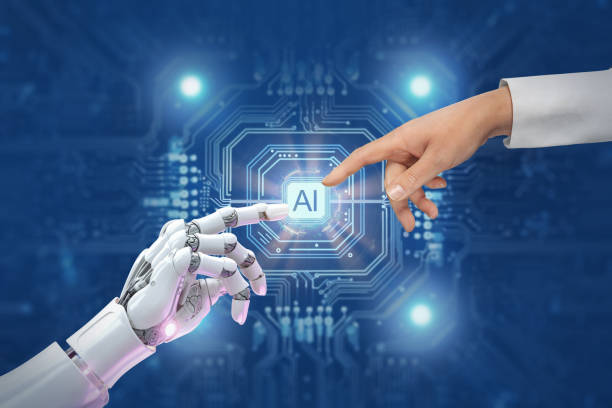Are you a die-hard anime enthusiast, a video game fanatic, or a science fiction and fantasy movie aficionado? Does...

All You Need to Know About Artificial Intelligence
Artificial Intelligence (AI) is a rapidly evolving field that continues to capture the attention and interest of various industries and organizations around the world. In this article, we will explore the fundamentals of AI, its historical origins, key technologies, and current applications. We will also examine its potential impact on employment, ethical considerations, and future prospects. Whether you are new to the topic or looking to deepen your understanding, this article will provide you with all the essential information about AI.
Here you will find products related to IA, Click here, or here. Show your passion for it.
Definition of Artificial Intelligence
Artificial Intelligence (AI) refers to the simulation of human intelligence in machines programmed to think and act like humans. It encompasses a range of technologies that enable machines to demonstrate a certain level of perception, learning, and problem-solving. In simple terms, AI is the development of computer systems that can perform tasks that typically require human intelligence. These tasks include, among others, visual perception, speech recognition, decision-making, and language translation.
One of the key goals of AI is to devise algorithms that enable the modeling of complex data. This data can take the form of visual content, language, or other types of information. AI systems strive to identify patterns and make decisions based on available data, aiming to mimic the cognitive functions of humans. This interdisciplinary field has far-reaching implications as it intersects with computer science, engineering, linguistics, psychology, and other areas of study. Its tools and applications are ubiquitous and impact various aspects of our personal and professional lives.
Historical Origins of Artificial Intelligence
The concept of artificial intelligence is not new and has deep historical roots. The origins of AI can be traced back to antiquity, with early ideas about intelligent automatons and mechanical men. However, the formal birth of AI as a field of study is often attributed to a workshop held in 1956 at Dartmouth College, where the term "artificial intelligence" was coined, and the field's ambitions were first outlined. Since then, AI has experienced significant periods of advancement and has overcome its share of challenges and limitations.
Throughout history, the quest for creating machines that can mimic and rival human intelligence has been a predominant theme. From Alan Turing's pioneering work to the development of early expert systems, the journey of AI has been marked by notable advances. The evolution of AI has been punctuated by the emergence of various approaches and schools of thought, such as symbolic AI reasoning in its primitive stages and the advent of connectionism and neural networks in later years. These historical developments have paved the way for the diverse and sophisticated technologies...
Artificial Intelligence in the Contemporary Landscape

The contemporary landscape of artificial intelligence is characterized by a diverse and expansive array of applications and approaches. From the ubiquity of AI in consumer technology to its pivotal role in driving innovation across all sectors, the current state of AI is one of pervasive influence and rapid advancement. AI is being employed in areas such as healthcare, finance, transportation, and manufacturing, among many others, to enhance efficiency, enable new capabilities, and unleash the potential of vast volumes of data.
One of the defining features of AI in the modern era is the wide range of techniques and methodologies it encompasses. Machine learning, a subfield of AI that focuses on the development of algorithms and models that allow systems to learn from data and make decisions based on it, has been a particularly impactful area of development. Deep learning, a type of machine learning involving the use of artificial neural networks to model and understand complex patterns in data, has been instrumental in driving many recent advances in AI, especially in the fields of image and speech recognition.
Key Technologies Shaping the Field of Artificial Intelligence
Several key technologies underpin the development and application of artificial intelligence. Machine learning, which enables systems to learn and improve from experience without being explicitly programmed, is at the forefront of many AI applications. Within machine learning, supervised learning, unsupervised learning, and reinforcement learning are fundamental paradigms driving the ability of AI systems to understand, interpret, and act on data. Natural language processing, a branch of AI that focuses on the interaction between computers and human language, is another fundamental technology that enables AI systems to process, understand, and generate human language in a meaningful context.
In addition to machine learning and natural language processing, the field of AI is also shaped by advances in computer vision, which allows machines to obtain high-level understanding from digital images or videos. This has profound implications for applications such as autonomous vehicles, medical image analysis, and industrial quality control. Furthermore, the ongoing development of generative adversarial networks (GANs) and other forms of generative AI is opening new frontiers in creative content generation, data synthesis enhancement, and the merging of human and machine creativity.
Distinction Between Narrow and General Artificial Intelligence
An important distinction in the field of artificial intelligence is the differentiation between narrow AI, which is designed to perform specific tasks and functions within a limited domain, and general AI, which demonstrates the ability to understand, learn, and apply its intelligence to a wide range of activities, much like a human. While narrow AI powers the intelligent capabilities present in many current systems and applications, such as virtual personal assistants and recommendation algorithms, the pursuit of general AI represents a long-term aspiration with profound implications for the future of technology and society.
Narrow AI, also referred to as weak AI, excels at performing well-defined tasks and is foundational in fields such as language translation, image recognition, and gaming. On the other hand, general AI, also known as strong AI, is characterized by the ability to excel across a spectrum of cognitive functions, such as reasoning, problem-solving, and self-improvement. Achieving general AI, while holding immense potential for addressing complex challenges, also poses profound ethical and social considerations, underscoring the need for responsible and human-centered development of AI technologies.
Ethical and Regulatory Considerations in Artificial Intelligence

The omnipresent and influential nature of artificial intelligence carries the critical imperative of addressing the ethical and regulatory dimensions of its development and deployment. As AI technologies become increasingly integrated into various aspects of everyday life and decision-making, issues related to responsibility, fairness, transparency, and implications for privacy and security come to the forefront. The responsible and ethical advancement of AI requires the formulation and enforcement of robust frameworks and standards that mitigate potential biases, ensure the accountability of AI systems, and safeguard the well-being and rights of individuals and communities.
Additionally, the regulatory landscape surrounding artificial intelligence is evolving to address the unique challenges and risks associated with AI technologies. From developing guidelines for the ethical use of AI in areas such as healthcare and finance to establishing principles for autonomous deployment of AI in vehicles and other safety-critical systems, regulatory bodies and industry consortia are actively involved in shaping the parameters and practices governing the development, deployment, and operation of AI. These efforts are crucial for fostering trust in AI technologies and aligning their evolution with the values and interests of society at large.
Impact on Employment and the Future of Work
The integration of artificial intelligence into the fabric of industries and economies is reshaping the employment landscape and the nature of work. While AI has the potential to automate routine tasks, improve productivity, and catalyze the development of new and innovative products and services, its increasing prevalence also brings about changes in qualification requirements and workforce dynamics across various sectors. The augmentation of human capabilities through AI, coupled with the imperative of continuous learning and skill enhancement, is giving rise to new paradigms of work and professional development.
Amidst these transformations, the coexistence and collaboration between human workers and AI systems are poised to become the hallmark of the future of work. Partnerships between humans and AI, where AI enhances decision-making and task execution by humans, are expected to yield significant increases in productivity and problem-solving ability. Furthermore, the evolution of AI technologies is anticipated to spawn the creation of new roles and occupations while influencing the demand for specific skills and competencies. Cultivating a workforce prepared for the future and facilitating smooth transitions in the labor market are integral components of realizing the potential of AI in a manner that leads to sustainable economic and social well-being.
The Future Trajectory of Artificial Intelligence

The future of artificial intelligence is imbued with vast prospects and compelling considerations spanning technological innovation, social adaptation, and the evolution of human-machine collaboration. As AI continues to advance, it is poised to infuse a broad spectrum of products, services, and experiences with higher levels of intelligence, personalization, and efficacy. The trajectory of AI development encompasses the continuous refinement of AI models and algorithms, the exploration of new frontiers in AI research, and the progressive integration of AI with complementary technologies such as the Internet of Things, blockchain, and augmented reality.
Additionally, the ethical and social dimensions of AI are poised to play an increasingly fundamental role in shaping the trajectory of AI. The responsible and inclusive deployment of AI, the mitigation of potential risks and biases, and the alignment of AI development with human values and welfare are indispensable factors that will underpin the evolution of AI in a manner that fosters trust and generates positive impact. The journey of AI into the future also entails proactive multidisciplinary collaboration, encompassing contributions from diverse stakeholders in the realms of technology, social sciences, policy, and ethics, to chart a path aligned with collective well-being and the advancement of humanity.
Historical Roots of Artificial Intelligence
Artificial intelligence draws from a rich tapestry of historical antecedents and technological milestones. The intellectual heritage of AI can be discerned in the automatons and mechanical marvels of ancient civilizations, in the mathematical and computational insights of visionaries like Ada Lovelace and Alan Turing, and in the foundational research and conceptual elucidation contributed by luminaries from the fields of computer science, cognitive psychology, and cybernetics. These diverse threads converged to impart to artificial intelligence its contemporary form and function, anchoring it in a legacy of ingenuity and progressive ideation.
Domains and Approaches in the Field of Artificial Intelligenceç
The domains and approaches that constitute the broad field of artificial intelligence encompass a mosaic of specializations and techniques. From the intricacies of machine learning, deep learning, and natural language processing to the multifaceted realms of robotics, computer vision, and expert systems, the landscape of artificial intelligence is replete with diverse and intertwined areas of interest. Furthermore, the application of AI in fields such as healthcare, finance, transportation, and e-commerce underscores the versatile and ubiquitous nature of its impact across a wide spectrum of human activities and social functions.
The fusion of historical knowledge, contemporary innovation, and future-oriented conjectures culminates in a holistic and dynamic understanding of the intricate tapestry of artificial intelligence, elucidating its significance, potential, and imperatives in the mosaic of human progress and technological evolution.
Conclusion
In conclusion, the field of Artificial Intelligence (AI) is a diverse and rapidly growing domain encompassing a multitude of approaches and disciplines. From its origins in computer science, AI has evolved into a groundbreaking technology that is impacting industries and organizations worldwide. As we continue to explore and develop AI, it is crucial to consider the ethical and regulatory implications, as well as its potential impact on employment. With the constant advancements and possibilities of AI, it is an exciting and important field to follow and understand.
Get the most exclusive products in our store.















Leave a comment